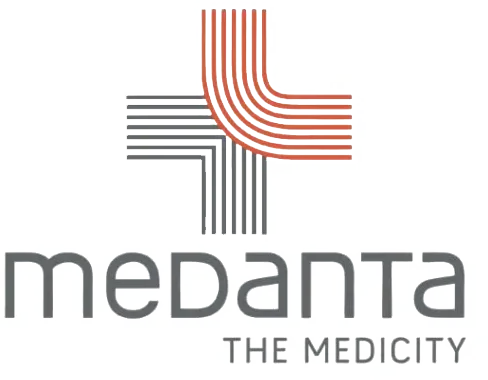Dr. Belal Bin Asaf
Thoracic (Chest) Surgeon
Director, Institute of Chest Surgery,
Chest Onco-Surgery & Lung Transplantation, Medanta Hospital

Dr. Belal Bin Asaf
Thoracic (Chest) Surgeon
Director, Institute of Chest Surgery,
Chest Onco-Surgery & Lung Transplantation, Medanta Hospital

Dr. Belal Bin Asaf provides advanced lung cancer treatment in Delhi,
focusing on a holistic approach that includes diagnosis, surgery, chemotherapy, and
radiation therapy. His extensive expertise and innovative methods allow him to develop
tailored treatment plans that effectively meet each patient's needs, establishing him as a
top choice for lung cancer care in the area. From initial consultations to ongoing support,
he prioritises patient comfort and well-being throughout the entire process. For those
seeking expert lung cancer care in Delhi, Dr. Belal Bin Asaf is an exceptional choice.
Lung cancer arises when lung cells undergo abnormal mutations and start to grow uncontrollably. These cells can be classified as benign (non-cancerous), which do not invade nearby tissues or spread throughout the body, or malignant (cancerous), which can invade surrounding tissues and metastasize to other areas. A biopsy is required to diagnose any suspicious tumours detected through imaging.
There are two primary types of lung cancer:
Treatment plans for lung cancer are based on staging, which is determined by factors such as:
Lung cancer progresses through the following stages:
The process of diagnosing lung cancer varies for each patient and may involve the following tests:
Blood Tests
Several blood tests are performed to assist in establishing a diagnosis and to inform the treatment plan.
Imaging Studies
To obtain a comprehensive view of the cancer, your doctor may recommend various imaging techniques, such as:
Lung Biopsy
If imaging or screening tests suggest a tumour, a biopsy will be required. This procedure involves taking a small sample of cells from the abnormal tissue, often guided by imaging techniques based on the tumour's location.
Small Cell Lung Cancer (SCLC)
Patients diagnosed with small cell lung cancer often present at an advanced stage where the cancer has already spread beyond the lungs. Treatment primarily revolves around chemotherapy, as surgical options are typically limited to very early-stage cases that lack lymph node involvement or distant metastasis. Radiation therapy may also play a role in managing SCLC.
Non-Small Cell Lung Cancer (NSCLC)
For those with non-small cell lung cancer, treatment usually involves a combination of approaches, including surgery, chemotherapy, radiotherapy, and targeted therapies. Early detection is crucial, as it often allows for surgical intervention, which is associated with the best long-term outcomes.
Treatment by Stage of Disease
Stage I NSCLC
In stage I, the primary treatment is typically surgical. Options include:
After surgery, the excised tissue is analysed for cancer cells at the margins, which could indicate residual disease. If cancer is detected, a second surgery may be needed, often followed by chemotherapy or radiation, especially for patients at a higher risk of recurrence. Genetic testing can also play a role in guiding post-surgical treatment. The Best Thoracic Surgeon in India provides advanced care to support such treatment plans.
Non-Surgical Options for Stage I NSCLC
For patients unable to undergo surgery due to significant health issues, options like stereotactic body radiation therapy (SBRT) or other radiation techniques may be explored. Affected lymph nodes will be removed when necessary, and radiofrequency ablation (RFA) may be considered for small tumours located in the outer lung.
Stage II NSCLC
Patients with stage II NSCLC who can have surgery typically undergo lobectomy or sleeve resection, with pneumonectomy considered as needed. Analysing the excised tissue aids in determining subsequent treatment steps.
Even if no cancer cells are found at the margins, postoperative chemotherapy is usually advised to eliminate any residual cells. If surgery is not an option due to serious medical conditions, radiation therapy may serve as the primary treatment modality.
Stage III NSCLC
Stage IV NSCLC
In stage IV, lung cancer has spread beyond the chest and is considered incurable. However, management strategies such as chemotherapy, targeted therapies, immunotherapy, and radiation can still improve life expectancy and enhance quality of life by alleviating symptoms.
Dr. Belal Bin Asaf is a highly skilled lung cancer specialist committed to delivering comprehensive care to his patients. He provides a wide range of services, including diagnosis, surgery, chemotherapy, and radiation therapy, all in one accessible location. He prioritises patient comfort and dignity, ensuring that your concerns are heard and addressed throughout your treatment journey. With a strong history of positive outcomes, Dr. Asaf is dedicated to helping patients achieve the best results possible. For compassionate and expert lung cancer care in Delhi, Dr. Belal Bin Asaf stands out as an excellent choice.
In Delhi, lung cancer treatment costs can range from approximately ₹1,05,000 to ₹26,25,000, reflecting a significant variation influenced by several factors:
The cost of lung cancer treatment in Delhi ranges from approximately ₹1,05,000 to ₹26,25,000. This variation depends on factors such as the type of treatment, stage of cancer, choice of hospital, and any additional services required.
The most common treatment options for lung cancer include surgery, radiotherapy, chemotherapy, and immunotherapy. Depending on the type and stage of cancer, patients often receive a combination of these treatments for the best outcomes.
While there is no cure for stage 4 lung cancer, treatment can help relieve symptoms and extend life. For patients with low overall health, doctors may recommend lower doses of therapy or treatments that focus on specific symptoms to improve quality of life.
Certain types of lung cancer may be considered curable if diagnosed early before spreading, although experts typically prefer terms like "remission" or "no evidence of disease" (NED). If you remain in remission or NED for five years or more, you may be viewed as cured.
Infections, such as pneumonia and sepsis, account for about 20% of deaths in individuals with advanced-stage lung cancer. Additionally, pulmonary haemorrhage contributes to 12% of lung cancer fatalities due to bleeding in the lungs.
We are here for you! How can we help?

Associate Director
Institute Of Chest Surgery, Chest
Onco-Surgery & Lung Transplantation